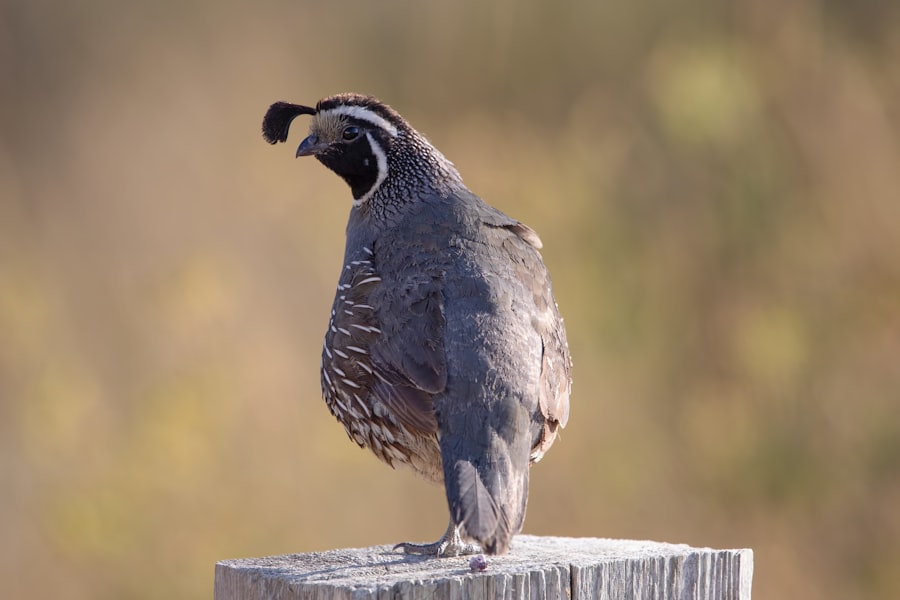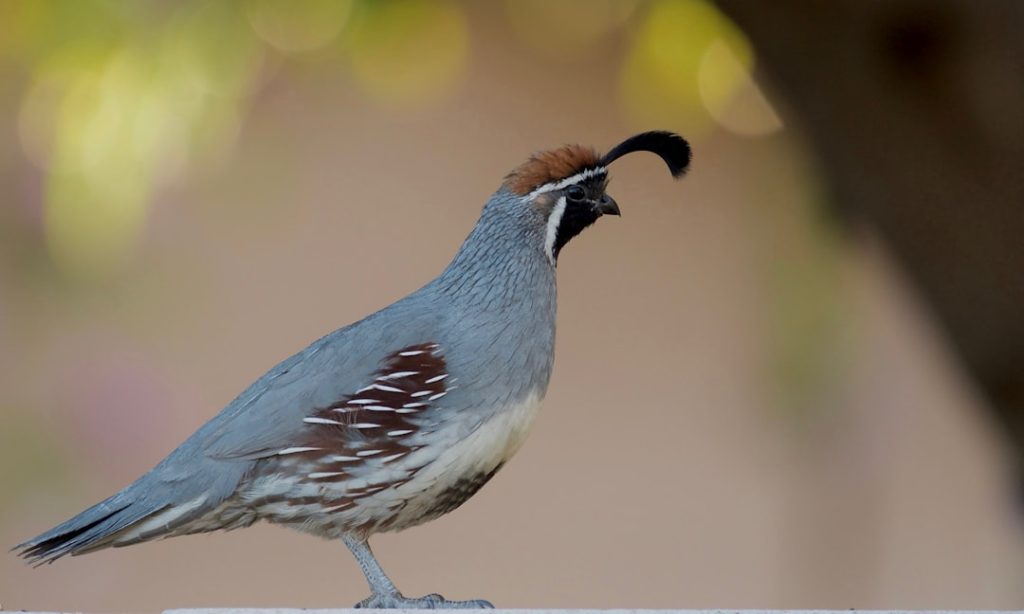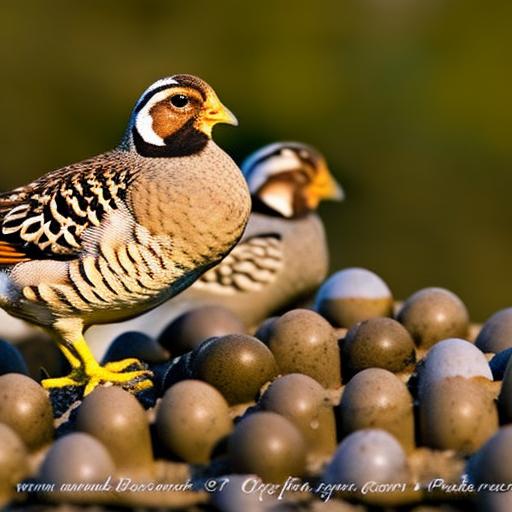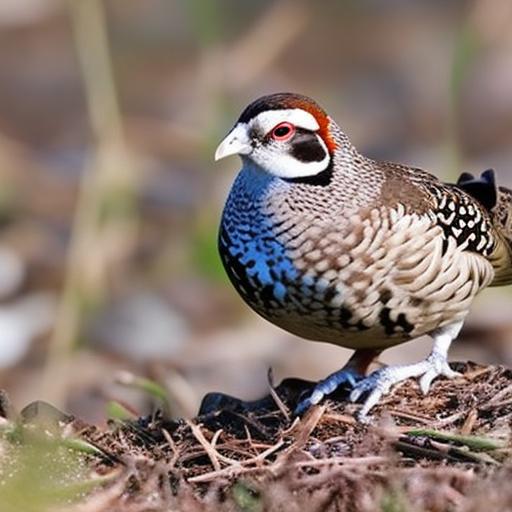Quails are small, ground-dwelling birds that are known for their delicious eggs and meat. While the common quail breeds such as the Coturnix quail are popular among farmers and homesteaders, there are also rare quail breeds that are gaining attention for their unique characteristics and qualities. These rare quail breeds are often sought after by enthusiasts and breeders who are looking to diversify their flocks and contribute to the preservation of these unique genetic lines. Rare quail breeds come in a variety of colors, patterns, and sizes, making them a fascinating addition to any quail enthusiast’s collection. In this article, we will explore the characteristics of rare quail breeds, where to find them for sale, considerations for purchasing them, caring for them, and breeding them.
Table of Contents
Key Takeaways
- Rare quail breeds are unique and valuable for their genetic diversity and potential for conservation
- Rare quail breeds often have distinct physical characteristics and color patterns that set them apart from more common breeds
- Rare quail breeds can be found for sale through specialty breeders, online marketplaces, and rare breed conservation organizations
- When purchasing rare quail breeds, it is important to consider factors such as breed authenticity, health, and genetic diversity
- Caring for rare quail breeds involves providing proper housing, nutrition, and healthcare to ensure their well-being and longevity
Characteristics of Rare Quail Breeds
Rare quail breeds come in a wide range of colors and patterns, making them visually stunning and appealing to quail enthusiasts. Some rare quail breeds, such as the Tibetan quail, have unique coloration with striking patterns that set them apart from the more common quail breeds. Additionally, rare quail breeds may also exhibit different sizes and shapes compared to their more common counterparts. For example, the Mexican speckled quail is known for its larger size and distinctive speckled plumage, making it a sought-after breed for those looking to add diversity to their quail flock. In addition to their physical characteristics, rare quail breeds may also possess unique behavioral traits that make them interesting to observe and work with. Some rare quail breeds may be more docile or have specific foraging behaviors that make them stand out from other quail breeds. Overall, the characteristics of rare quail breeds make them a valuable addition to any quail enthusiast’s collection.
Where to Find Rare Quail Breeds for Sale
Finding rare quail breeds for sale can be a challenging task, as these breeds are not as widely available as the more common quail breeds. However, there are several avenues that enthusiasts can explore to locate and purchase rare quail breeds. One option is to connect with local or regional quail breeders who may specialize in rare quail breeds or have them available as part of their breeding program. These breeders can provide valuable insights into the care and maintenance of rare quail breeds and may also offer mentorship opportunities for those looking to start their own breeding program. Another option is to attend poultry shows and exhibitions where rare quail breeds may be showcased and available for sale. These events provide a great opportunity to network with other quail enthusiasts and breeders while also getting a firsthand look at the different rare quail breeds available. Additionally, online platforms such as social media groups, forums, and classified ad websites can also be valuable resources for finding rare quail breeds for sale. These platforms allow enthusiasts to connect with breeders from around the world and access a wider selection of rare quail breeds.
Considerations for Purchasing Rare Quail Breeds
When considering purchasing rare quail breeds, there are several important factors to take into account to ensure a successful acquisition and integration into an existing flock. One consideration is the availability of suitable housing and facilities to accommodate the specific needs of the rare quail breeds being considered. Different rare quail breeds may have varying space requirements, environmental preferences, and social dynamics that need to be taken into consideration when planning for their care. Another consideration is the availability of specialized feed and nutritional requirements that certain rare quail breeds may have. It’s important to ensure that the necessary feed and supplements are readily available to support the health and well-being of the rare quail breeds being considered for purchase. Additionally, it’s important to consider the long-term goals and objectives for acquiring rare quail breeds, whether it’s for breeding purposes, exhibition, or simply as pets. Understanding these goals can help guide the selection process and ensure that the chosen rare quail breeds align with the desired outcomes.
Caring for Rare Quail Breeds
Caring for rare quail breeds requires attention to detail and a thorough understanding of their specific needs and requirements. Providing a suitable living environment is essential for the health and well-being of rare quail breeds. This includes ensuring that they have access to clean water, appropriate shelter, and adequate space to move around and exhibit natural behaviors. Additionally, providing a balanced diet that meets the nutritional needs of the specific rare quail breeds is crucial for their overall health and productivity. This may include offering a combination of commercial feed, fresh greens, insects, and supplemental vitamins and minerals as needed. Regular health checks and monitoring for signs of illness or distress are also important aspects of caring for rare quail breeds. Being proactive in addressing any health concerns or issues can help prevent potential outbreaks and ensure the long-term viability of the rare quail breeds in a flock. Lastly, providing enrichment activities such as dust baths, perches, and foraging opportunities can help keep rare quail breeds mentally stimulated and engaged, contributing to their overall welfare.
Breeding Rare Quail Breeds

Breeding rare quail breeds requires careful planning, attention to genetic diversity, and a commitment to preserving the unique traits and characteristics of these breeds. Before embarking on a breeding program for rare quail breeds, it’s important to conduct thorough research on the specific breed’s breeding requirements, reproductive behaviors, and genetic considerations. Understanding the genetic makeup of the rare quail breeds being bred is essential for maintaining healthy populations and avoiding inbreeding issues. Additionally, having a clear understanding of the desired traits and characteristics that are being bred for can help guide the selection process and ensure that breeding efforts align with specific goals and objectives. Providing suitable nesting areas, monitoring breeding behaviors, and ensuring proper incubation conditions are all important aspects of successfully breeding rare quail breeds. It’s also important to have a plan in place for managing offspring, whether it’s through selling them to other enthusiasts or integrating them into an existing flock.
The Value of Rare Quail Breeds
Rare quail breeds hold significant value in the world of poultry farming and aviculture due to their unique characteristics, genetic diversity, and potential contributions to conservation efforts. By preserving and promoting rare quail breeds, enthusiasts and breeders play a crucial role in maintaining genetic diversity within domesticated quail populations. Additionally, rare quail breeds offer opportunities for education, research, and exhibition that can help raise awareness about the importance of conserving these unique genetic lines. Whether it’s through showcasing rare quail breeds at poultry shows, participating in breeding programs, or simply enjoying their beauty and diversity on a personal level, the value of rare quail breeds extends far beyond their physical attributes. As interest in rare quail breeds continues to grow, it’s important for enthusiasts and breeders to work together to ensure the long-term viability and sustainability of these valuable genetic resources.
If you’re interested in rare quail breeds for sale, you might also want to check out this informative article on creating the perfect chicken coop in Grand Island, NE. It’s a great resource for anyone looking to start their own poultry farm. Learn more about it here.
FAQs
What are rare quail breeds?
Rare quail breeds are varieties of quail that are not commonly found and are considered to be unique or unusual. These breeds may have distinct physical characteristics, color patterns, or behaviors that set them apart from more common quail breeds.
Where can I find rare quail breeds for sale?
Rare quail breeds can often be found for sale through specialty breeders, online marketplaces, or at rare breed poultry shows and auctions. It’s important to do thorough research and ensure that the seller is reputable and the birds are healthy before making a purchase.
What are some examples of rare quail breeds?
Examples of rare quail breeds include the Tibetan quail, the Mexican speckled quail, the Manchurian quail, and the Harlequin quail. These breeds may have unique color patterns, feather markings, or other distinguishing features.
Are rare quail breeds suitable for beginners?
Some rare quail breeds may require more specialized care or have specific breeding requirements, so they may not be the best choice for beginners. It’s important for prospective quail owners to research the specific needs of any rare breed they are interested in before making a purchase.
What should I consider before purchasing rare quail breeds?
Before purchasing rare quail breeds, it’s important to consider factors such as the availability of suitable housing, the specific dietary and environmental needs of the breed, and whether you have access to a reputable breeder or source for the birds. Additionally, it’s important to check local regulations and restrictions on keeping quail.
Meet Walter, the feathered-friend fanatic of Florida! Nestled in the sunshine state, Walter struts through life with his feathered companions, clucking his way to happiness. With a coop that’s fancier than a five-star hotel, he’s the Don Juan of the chicken world. When he’s not teaching his hens to do the cha-cha, you’ll find him in a heated debate with his prized rooster, Sir Clucks-a-Lot. Walter’s poultry passion is no yolk; he’s the sunny-side-up guy you never knew you needed in your flock of friends!







